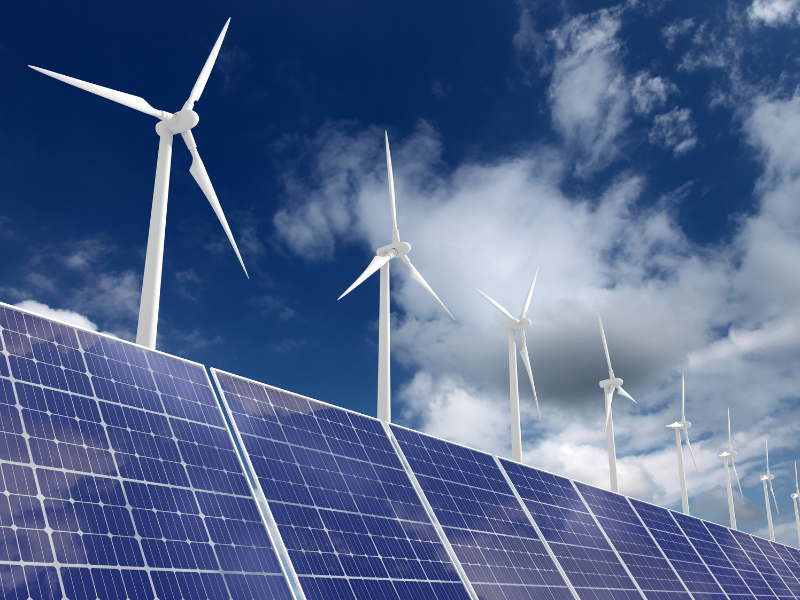In a world grappling with climate change and limited natural resources, the adoption of renewable energy sources has become increasingly crucial. Renewable energy, derived from naturally occurring and replenishable sources, offers a myriad of advantages over traditional fossil fuels. This article aims to explore the numerous benefits of renewable energy and how it is poised to shape a sustainable future for generations to come.
Advantages of Renewable Energy: Clean and Sustainable Power
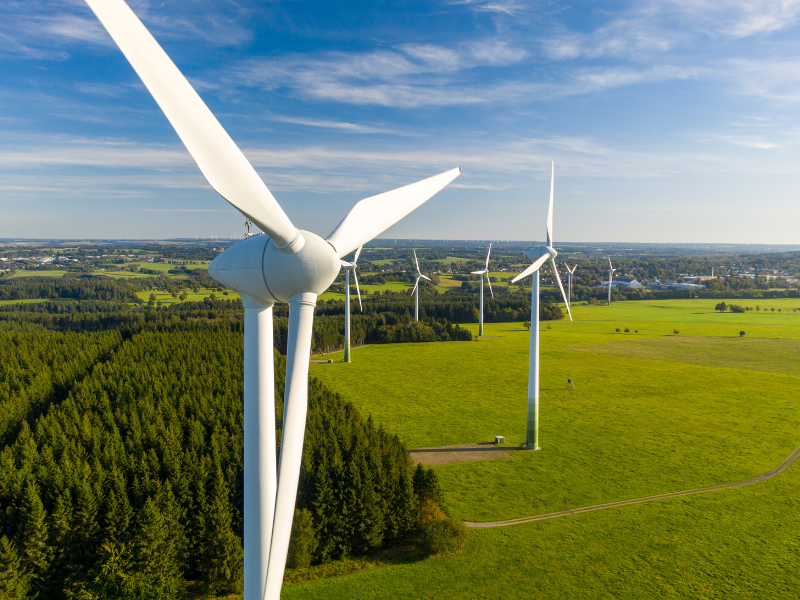
Renewable energy encompasses a wide range of sources, including solar, wind, hydro, geothermal, and biomass. By harnessing these natural resources, we can reduce our reliance on non-renewable fossil fuels such as coal, oil, and natural gas, which contribute to air pollution and greenhouse gas emissions.
Solar Power: Harvesting Energy from the Sun
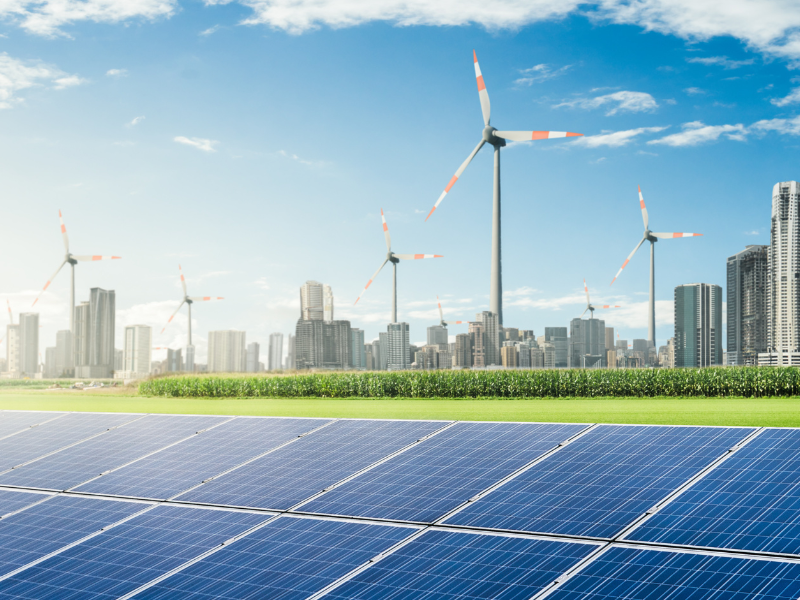
Solar energy, derived from the radiant light and heat of the sun, is one of the most abundant and readily accessible renewable energy sources. It offers several advantages:
- Energy Independence: Solar power allows individuals and communities to generate their own electricity, reducing dependence on centralized power grids and utility companies.
- Reduced Carbon Footprint: Solar panels produce clean, renewable energy without emitting greenhouse gases or harmful pollutants, thus mitigating the impact of climate change.
- Cost Savings: While the initial installation cost may be higher, solar energy can lead to significant long-term savings on utility bills.
Wind Power: Harnessing the Power of the Wind

Harnessing the power of wind through wind turbines is another effective means of generating renewable energy. The advantages of wind power include:
- Abundant Energy Source: Wind power is abundant in many regions, providing a consistent and reliable source of renewable energy.
- Green Electricity Generation: Wind energy production does not emit greenhouse gases or other pollutants, making it an environmentally friendly alternative to fossil fuel-powered electricity generation.
- Job Creation: The wind energy sector offers substantial employment opportunities, stimulating local economies and contributing to job growth.
Hydroelectric Power: Tapping into Water’s Potential
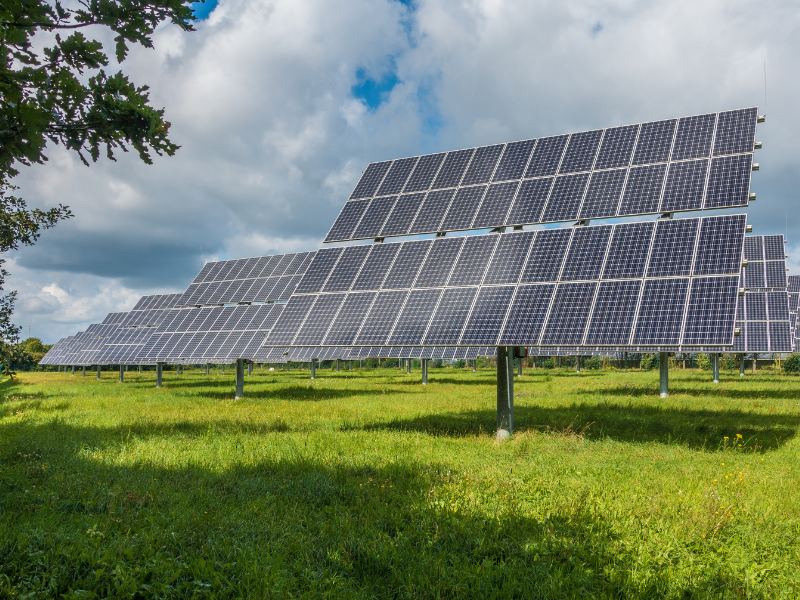
Hydroelectric power, derived from the gravitational energy of flowing or falling water, is a widely utilized renewable energy source. Its advantages include:
- Clean and Renewable: Unlike fossil fuel power plants, hydroelectric dams do not emit pollutants and provide a continuous supply of clean energy.
- Water Management: Hydroelectric power plants serve the dual purpose of producing electricity and managing water resources for irrigation, flood control, and water supply.
- Energy Storage: Hydroelectric dams can store excess energy, enabling electricity generation during peak demand periods and ensuring grid stability.
Geothermal Energy: Tapping into the Earth’s Heat
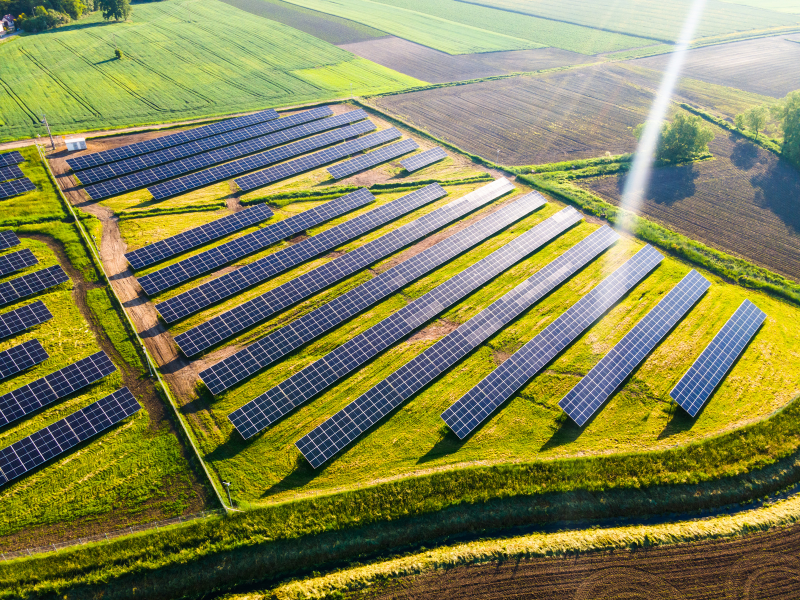
Geothermal energy harnesses the heat stored beneath the Earth’s surface to generate electricity and heat buildings. Its advantages include:
- Sustainability: Geothermal energy is a renewable resource as the Earth’s heat is continuously replenished.
- Reliable and Always Available: Geothermal power plants can operate 24/7, providing a consistent and steady supply of electricity.
- Low Emissions: Geothermal energy releases minimal greenhouse gases and pollutants, making it a cleaner alternative to fossil fuels.
Biomass Energy: Transforming Organic Matter into Power

Biomass refers to organic materials such as wood, agricultural residues, and dedicated energy crops that can be converted into energy through various processes. The advantages of biomass energy include:
- Waste Management and Recycling: Biomass energy utilizes organic waste materials, reducing dependence on landfills and contributing to waste management.
- Carbon Neutral: While burning biomass releases carbon dioxide, the carbon emitted is offset by the growth of new biomass, resulting in a carbon-neutral energy source.
- Flexibility: Biomass can be utilized for electricity generation, heating, and transportation fuels, providing versatile options for energy production.
Renewable Energy: Frequently Asked Questions (FAQs)
- What are the main advantages of renewable energy? Renewable energy offers numerous advantages, including reduced carbon emissions, energy independence, job creation, and cost savings on utility bills.
- How does renewable energy contribute to reducing climate change? By replacing fossil fuel-powered electricity generation with clean and renewable energy sources, we can significantly reduce greenhouse gas emissions, mitigating the impact of climate change.
- What role does government policy play in promoting renewable energy? Government policies such as tax incentives, renewable energy mandates, and research funding play a crucial role in incentivizing the adoption and development of renewable energy technologies.
- Are there any limitations to renewable energy? While renewable energy sources have many advantages, they do face challenges such as intermittency (in the case of solar and wind) and the initial high cost of infrastructure installation.
Conclusion
Renewable energy presents a viable solution to combat climate change, reduce pollution, and ensure a sustainable future. With its numerous advantages, including clean and abundant power, reduced carbon emissions, and long-term cost savings, renewable energy is paving the way for a greener and more prosperous world. By embracing renewable energy technologies and transitioning away from fossil fuels, we can create a brighter future for generations to come. So, let us harness the power of renewables and embark on a sustainable journey towards a cleaner and greener world.
